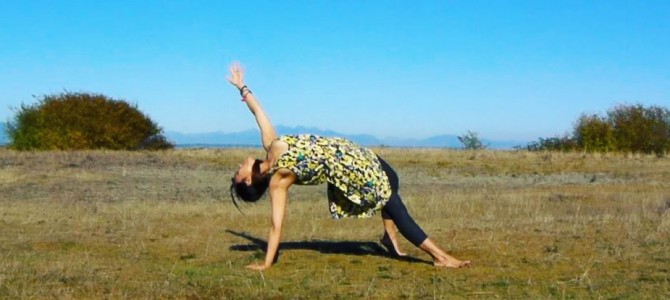By Jessica Tang
Four years ago, when I first started teaching yoga, I always aspired for the one day when I can be like this teacher or that teacher and have my own following. I wanted to be a leader, and to me, these teachers were leaders because they had followers. At that time, leadership to me meant being in a position of power, having a “management” role, or having a large following. Although there is no definitive answer to what leadership is, I learned over the past few years that leadership has less to do with your job title or the amount of followers you have. Rather, it is related to how much you inspire and motivate not just other people, but yourself.
Right out of teacher training, I experienced a steep learning curve in finding my own voice as a teacher. The words with which I led class were my teacher’s words. And despite the number of different classes I took to learn from other teachers, I found myself feeling like an echo or a shadow of someone else. As I taught more classes, my knowledge grew, but I felt lost at the same time. Confused as to what my own voice sounds like, another voice started developing in my head — the voice of doubt.
When it comes to my own voice of doubt, it usually comes in the forms of self-defeating statements and constant comparison. As much as I was learning from other teachers, I also found myself comparing my experience level to theirs. The dialogue of comparison soon turned to one of harsh statements that left me feeling small. Despite the positive feedback I received from students, I had a tough time letting go of the nagging internal dialogue that said I was not enough. This voice of doubt not only left me feeling defeated, but kept me from venturing outside the comfort zone I found in a particular studio.
One of my teacher friends once shared that we can’t truly be compassionate towards others until we learn to truly be compassionate towards ourselves. In Sanskrit, there is a term — ahimsa — that loosely translates to “do no harm,” “non-violence” or “compassion.” Although in my classes I taught students to practice compassion and non-judgment, it was paradoxical that my own internal dialogue towards myself was anything BUT gentle and kind. I eventually shared my insecurities with a coach who was also one of my students. In response, this is what she asked me:
If it were a friend who told you about the voice in her head that says “I am not enough,” what would you tell her?
I thought about this one for a second, and this was what I would have told my “friend:”
Come into a comfortable seat, and start to tune into your breath. Take a few deep inhales and exhales, letting go of anything you find that is weighing you down as you breath out through your mouth. Do this for about 5 cycles of breath. Now notice the thoughts running through your head. Without any judgments or labels on them as “good” or “bad,” ask yourself: “Are they true?”
After that meeting, I returned to the dialogue I would have told a friend every time I caught my mind chatter talking down on myself. Instead of teaching others what ahimsa means, I started practicing it too. The breath work practiced in yoga served as a tool for greater self-awareness and mindfulness. In turn, I realized that as much as it was important to share my teachings with students, it was also important to BE a student to my own inner teacher.
Similarly, leadership is not gained through having a certain title or by setting out how many followers one must have in order to be considered a leader. Inspiration is derived from living out our personal values and making choices that align with our inner truth. Beyond the physical practice, yoga teaches us that we each have our own style as leaders, teachers, etc. and most importantly, to always honor and lead with our inner truth.
Jessica is a yoga teacher from Vancouver, BC and recently started the project – Wanderlove Yoga – to share how yoga can be experienced anywhere, anytime. Off the mat, she loves exploring places and capturing moments on her camera.
When we start our career with service it is easy to get overwhelmed with the social issue at hand, to put all our energy into “fixing”- it is important to remember to breathe, to make space for our own growth and healing.

